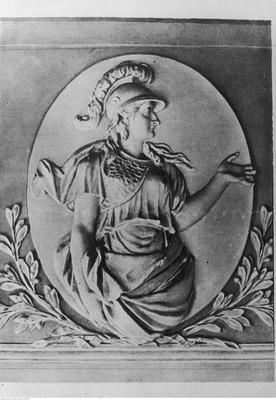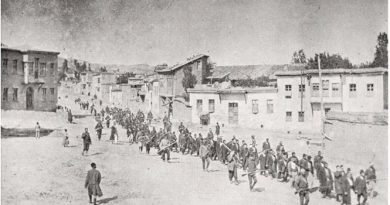Polish antidefamation law: facts and misconceptions
What the Polish bill is not:
I. “Holocaust Denial”
This is an emotive term. It used to straightforwardly mean the undermining of the fact of 6 million murdered Jews. However, the Polish bill in no sense questions the historical fact of 6 million Jews murdered by Germany! In recent years, “Holocaust denial” has been expanded into an amorphous term for political purposes. As an example, were a historian to point out the easily-verifiable fact that Hitler had personal Jewish friends whom he spared, could that historian be accused of Holocaust denial? Who knows? The deliberate politicization of the term “Holocaust denial” appears to be the main reason for the “Holocaust denial” demonization of this bill.
II. “Complicity in the Holocaust”
This well-worn Holocaustspeak phrase is also falsely used against the Polish bill. “Complicity in the Holocaust” is another amorphous, politically-loaded term. What if, for instance, it was found that 10 or 100 American POWs in German captivity had switched sides and actively assisted Nazi Germany in the murders of Jews? Could we then conclude that the USA is thereby “complicit in the Holocaust”-if such an accusation served some political purpose? Yet that is exactly what has been done to Poland, based on isolated instances of Poles helping the Nazis against Jews, and this bill attempts to finally correct this wrong.
III. “A Threat to Academic Freedom”
The Polish bill clearly and unambiguously states that academics are exempt from this law’s provisions. Thus, the bogeyman-style accusation, that this law will exert a chilling effect on academic research and discourse, is clearly as political in nature as it is maliciously false.
IV. “An Unprecedented Intrusion of the Law into Matters Best Left Outside the Law”
The protection of historical memory not only is a valid philosophical consideration, but has already long been in force in the form of laws, in many nations, that criminalize Holocaust denial. Thus the law already is involved in matters of historical discourse, and so the Polish law is in no sense some kind of novel or improper intrusion of the law into forbidden legal territory.
What the Polish bill is:
I. Protecting History From Falsification
The main goal of the new Polish law is to sanction the historically false and offensive term “Polish death camps”, and false accusations of Poland’s complicity in the Holocaust. Again, these are parallel to long-precedent laws that criminalize the questioning of 6 million murdered Jews.
II. Protection of Poles and Jews From Collectivist Scapegoating
The law makes a clear distinction between blaming individuals for misdeeds, and blaming an entire people for the action of a few. Thus, the charge that this law is the new Polish way of repressing the study of the Polish killing of Jews, is egregiously false. Here are some clarification of what this law would—and more importantly-would not do:
Under this law, any individual would be free to discuss individual Jews or Poles collaborating with the Nazis. In contrast, were a Polish (or Jewish) individual or organization to claim that Jewish (Polish) collaboration was a necessity for Germany’s Holocaust success, he or she would be liable. Likewise, were a Polish organization or individual to claim that Communism was essentially or inevitably Jewish, he or she would likewise be liable. On the other hand, if a Polish organization or individual were to claim that Jewish individuals are responsible for war crimes against Poles (for instance, Solomon Milstein, one of the Soviet leaders of state security responsible for the logistics of the massacre of Polish officers in the forests of Katyn and Starobielsk), there would be no threat of punishment.
According to the Israeli War Crimes Commission less than 0.1% of Poles collaborated with Nazi Germany. 99.9% didn’t! If an organization or individual points a finger at one of those who constitute this 0.1%, there will be no threat of punishment. If, however, an organization like the Simon Wiesenthal Center or the Nazi hunter Efraim Zuroff accuse Poles of being complicit in the Holocaust, this partakes of collectivist scapegoating that violates the new Polish law, and they could be liable to prosecution.
§
Here’s a translated excerpt from the proposed Polish law (the full original Polish version of the draft antidefamation law is accessible here)
Art. 55a.
1. Who, in public and against facts, ascribes to the Polish Nation or to the Polish State responsibility or co-responsibility for committed by the Third Reich Nazi crimes defined in art. 6 of the Charter of the International Military Tribunal attached to the International Agreement on the prosecution and punishment of major war criminals of the European Axis, signed in London on August 8, 1945 (Journal of Laws of 1947 item 367) or for other crimes against peace , humanity or war crimes or otherwise grossly reduce the responsibility of the actual perpetrators of these crimes, punishable by a fine or imprisonment of up to 3 years.”
2. If the perpetrator of the act referred to in paragraph 1 acts unintentionally, he/she is subject to penalty fines or imprisonment restrictions.
3. There is no crime referred to in para. 1 and 2, if the person has committed this act as part of his artistic or scientific activity.


